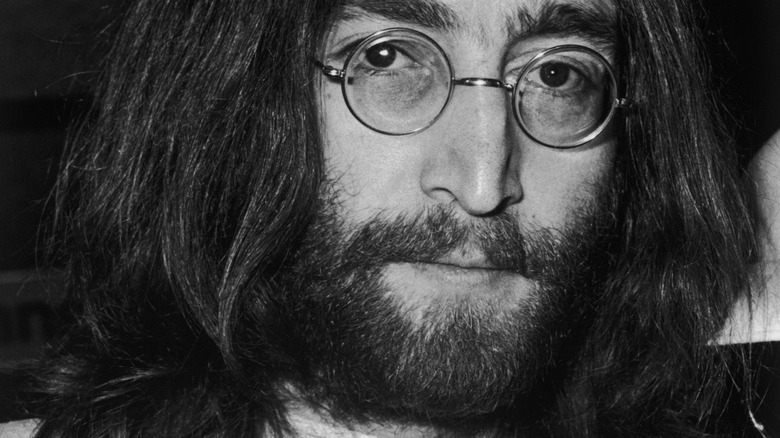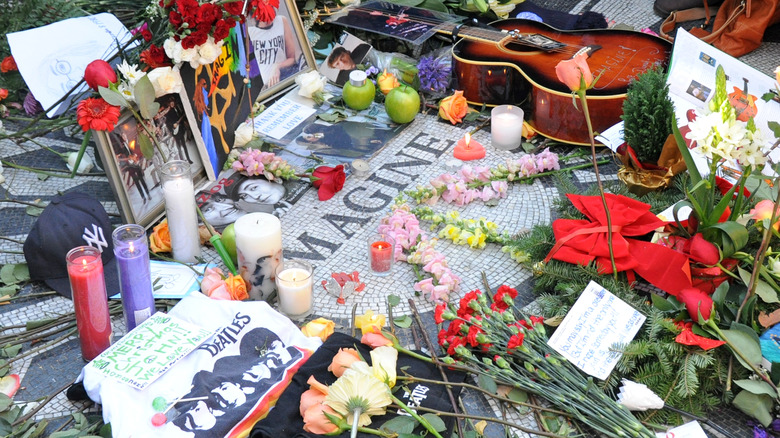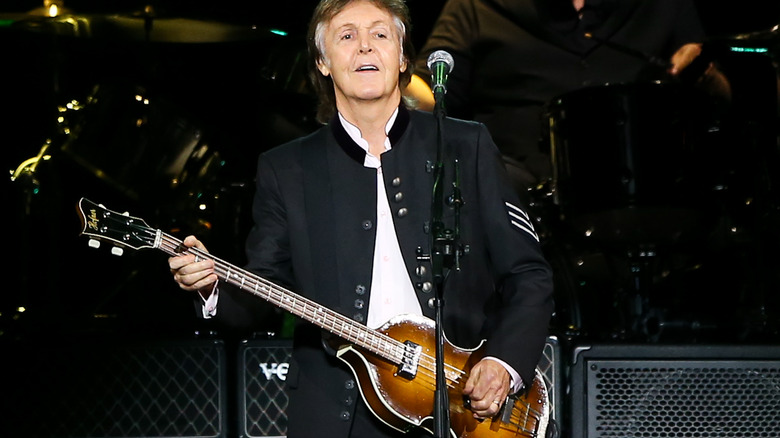Paul McCartney's Brutal Poem For John Lennon's Murderer, Mark David Chapman
If there's one thing fans of a given medium, sport, or similar enjoy, it's discussing the best of the best: comparing the virtues of one superstar over another, often controversially deeming one to be the very best of all time.
Is soccer's Lionel Messi greater than Cristiano Ronaldo? Which of the Avengers is truly the strongest? Endless match statistics, movie moments, and comic book scenarios are brought to bear during the course of these popular and lively debates. Ultimately, perhaps there's no need to compare and contrast. The privilege of enjoying such legends at work, whoever they may be, should be enough for all of us.
In terms of the best bands of all time, however, there's one particular name that's practically beyond debate — one that even other heavyweights have to pay due respect to. Per Up In The Site in late 2019, Liam Gallagher of the legendary Oasis told MOJO Magazine, "[W]e weren't that great anyway ... we weren't pushing the boundaries, we weren't Pink Floyd or the Beatles."
The latter British quartet, most famously composed of Paul McCartney, George Harrison, Ringo Starr, and John Lennon, warrant speaking of in such reverent tones. The days of Beatlemania were unlike anything the music world had ever seen, and perhaps would ever see again. Lennon's murder at the hands of Mark David Chapman, then, struck millions around the world a profound blow. McCartney, in particular, was devastated by the death of his former bandmate, and wrote a rage-filled poem directed at Chapman — one that perfectly encapsulates the sadness, confusion, and anger that the world felt when it lost Lennon.
John Lennon's tragic death
As Biography reports, John Lennon was killed on December 8, 1980. He was 40 years of age. He met his end in New York City, outside his apartment building at around 10:50pm. Newly enthused about music he had created along with wife Yoko Ono, he returned from a recording session and approached his home when Mark David Chapman (with whom Lennon had interacted earlier that day) fired at him. The former Beatle was shot four times and declared dead around a half-hour later at the Roosevelt Hospital.
Via the New York Post, in "The Last Days Of John Lennon" by James Patterson with Casey Sherman and Dave Wedge, it's established that Mark Chapman had been a fan of Lennon's. He had turned against the star, Wedge reportedly told the outlet, because Chapman considered Lennon to be a "fraud" who "sold out." In the shooter's view, it seems, Lennon was not honoring his medium, but making music simply for the money.
On June 23, 1981, The New York Times reported that Chapman's trial was a complex affair before a closed court. The defense tried to argue that Chapman was "delusional and psychotic." By contrast, prosecutors argued Chapman had "committed a deliberate, premeditated execution." From the title of Paul McCartney's poem about the man, it seems clear he believed the killer acted with intent.
Mark David Chapman: Jerk of All Jerks
In April 2001, ABC News reported that Paul McCartney had opened up on the harrowing and earth-shattering topic of John Lennon's untimely demise. "We'd been robbed of this beautiful human being," he said, per the outlet. According to him, all he could think about Mark David Chapman was "jerk of all jerks." This duly became the title of one of McCartney's poems, and a particularly pointed one at that.
ABC News goes on to state that the work appears in McCartney's book, "Blackbird Singing: Poems and Lyrics, 1965-1999." As one of the most iconic, lauded, and well-recognized songwriters in musical history, it's little surprise that McCartney has turned his pen to other forms of writing too. "Jerk of All Jerks" is a particularly emotional piece.
"I'm here to undo all your charitable works, and I do it quite simply by making mistakes. And one little boo-boo is all that it takes and you're at the mercy of jerk of all jerks," McCartney writes. Per Far Out Magazine, the poem goes on, "I'm the guy with a pistol who kills your best friend ... I'm the man that disposes of nuclear waste ... there's no need to worry; it's perfectly safe."
Lennon and McCartney may not have always quite been "best friends," but McCartney's words speak plainly of the futility of it all. Lennon's positive messages, his philanthropy, his passionate words of peace: though it all lives on, an extraordinary man's life was brutally cut short in a fleeting instant.


